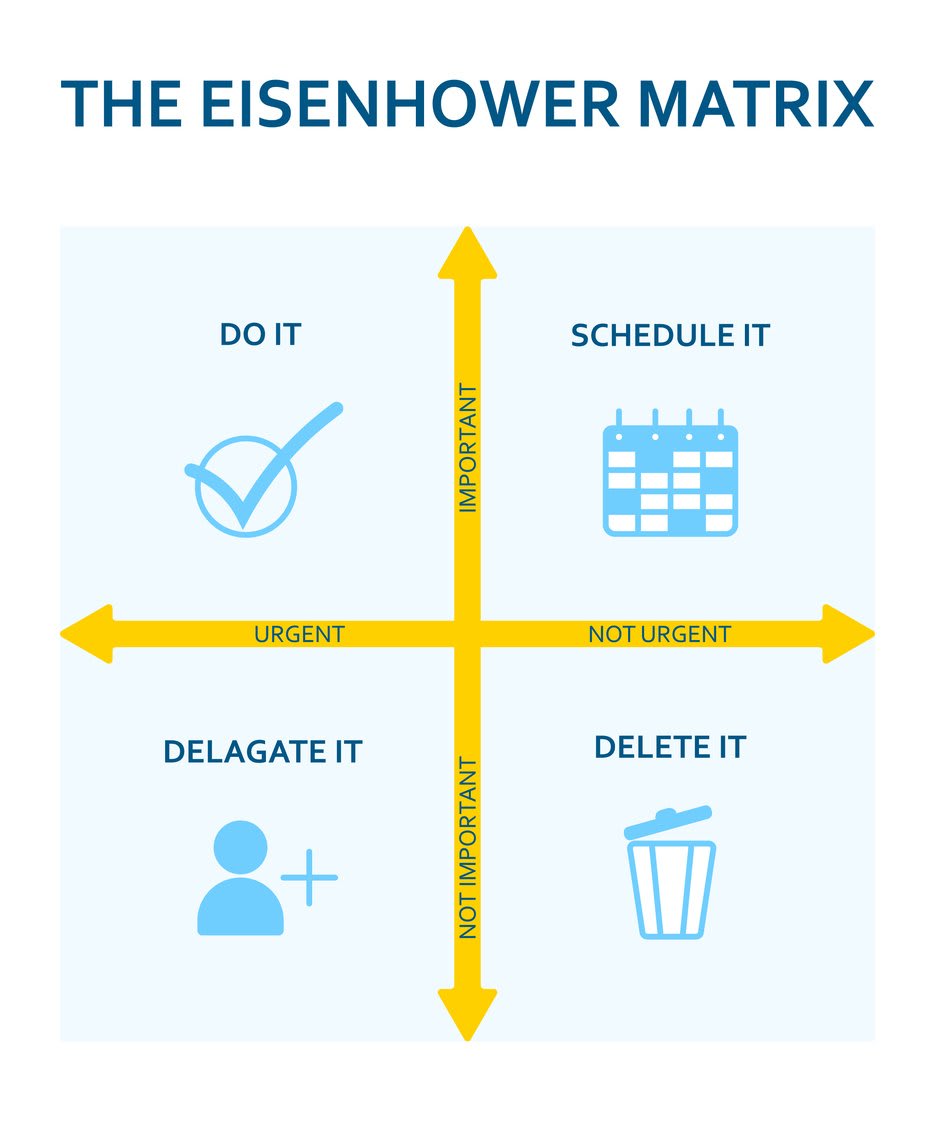Struggling to stay on top of everything? These time management tips can help you cut through the chaos, stay focused, and make the most of every hour. Whether you're juggling deadlines or just trying to build better habits, these practical time management strategies will help you take control of your day and get closer to your goals without burning out.
Key Takeaways
- Track your time to identify patterns and eliminate nonproductive activities, laying the groundwork for effective time management.
- Utilize the Eisenhower Matrix to prioritize tasks, focusing on what is important and urgent to boost productivity.
- Plan your day in advance and set clear goals; this enhances focus, helps manage tasks efficiently, and reduces stress.
Understand How You Spend Your Time

To enhance your better time management skills:
- Understand how you currently spend your time, as this insight is the foundation for all other effective time management strategies.
- Start by tracking your activities in 15-minute intervals for a week using a time log.
- Use this method to gain a clear picture of where your valuable time goes, along with some management tips.
Time-tracking apps can simplify this process, offering an easy way to monitor your daily activities and identify patterns. Evaluating your time log reveals whether you’re completing essential tasks or spending too much time on nonproductive activities. Recognizing these patterns enables more effective time management.
Identifying your productivity patterns allows for better organization and prioritization of high-value activities. Determining which tasks consume the most time helps you decide if they are worthwhile or should be minimized. This step is key to eliminating time-wasters and boosting overall productivity.
Prioritize Tasks with the Eisenhower Matrix

With an understanding of how you spend your time, prioritizing tasks effectively becomes crucial. The Eisenhower Matrix is a powerful tool that helps you categorize tasks based on their importance and urgency. This method divides tasks into four quadrants:
- Important & Urgent
- Important & Not Urgent
- Not Important & Urgent
- Not Important & Not Urgent.
Tasks in the first quadrant, which are both urgent and important, should be addressed immediately. These are high-priority tasks that demand your immediate attention. Tasks that are important but not urgent belong in the second quadrant, allowing you to schedule them for later. This method ensures you don’t neglect significant long-term goals while managing daily demands.
For tasks that are urgent but not important, delegate them whenever possible. Delegating these tasks frees up your time to focus on more critical activities. Finally, tasks that are neither important nor urgent should be minimized or eliminated to avoid wasting time. A ‘to do’ list based on this matrix keeps you focused on tasks that truly matter.
Using the Eisenhower Matrix to prioritize tasks can significantly boost productivity. Focusing on important tasks first ensures critical activities are completed on time, enhancing time management and efficiency.
Plan Your Day Ahead of Time
Planning your day in advance is a cornerstone of effective time management. Identifying high-priority activities and scheduling your day around them helps you stay ahead and reduce stress. Waking up early provides a head start, letting you tackle priorities before distractions arise.
Use a personal planning tool, such as a planner or digital app, to organize tasks effectively. Creating a detailed plan the night before or in the early morning sets clear intentions and minimizes guesswork. A hectic schedule can make it challenging to stay organized, so plan ahead by scheduling smaller tasks during waiting or commuting times to maximize your day.
Understanding your productivity levels patterns helps allocate challenging tasks to times when you are most focused and more energy. This ensures tasks are accomplished more efficiently, saving valuable time.
Set Clear Goals for Each Day

Clear daily goals are crucial for maintaining focus and enhancing productivity. Establish specific, achievable goals for clarity and direction. Start by identifying the three most important tasks you need to accomplish and write them down in detail.
Focusing on one task at a time is more productive than multitasking, which can decrease overall productivity. Relate each task to a goal to eliminate unrelated activities and ensure continuous progress. This goal-oriented approach enhances productivity and fosters a sense of accomplishment.
A single goal for each working day keeps you motivated and organized, making it easier to balance school and manage all your tasks in various aspects of life on a given day.
Limit Distractions with Website Blockers
Distractions can significantly reduce your productivity, leading to wasted time and increased stress. Website blockers effectively minimize access to distracting sites and browser windows during work hours. Tools like Cold Turkey Blocker, LeechBlock NG, and SelfControl offer customizable options to block specific sites and apps.
These applications let you set schedules for blocking sites, keeping you focused on tasks and managing screen time. Freedom, for instance, blocks distracting content on all devices simultaneously, ensuring productivity across platforms.
Limiting distractions helps build better habits and creates barriers to impulsive surfing, ultimately enhancing productivity.
Use the Pomodoro Technique
The Pomodoro Technique involves working in focused 25-minute sessions followed by short breaks, effectively setting time limits that maintain high concentration levels and reduce the likelihood of burnout. Each Pomodoro session lasts for 25 minutes, followed by a five minute break to recharge.
Short, focused work sessions can lead to higher productivity compared to longer, less structured periods. Minimizing distractions during work intervals, the Pomodoro Technique keeps you focused and accomplishes tasks more efficiently.
Break Down Large Goals into Smaller Tasks
Large goals can feel overwhelming; breaking them into smaller tasks makes them more manageable. This approach offers several benefits:
- Reduces feelings of being overwhelmed
- Enhances focus
- Establishes deadlines for each smaller task, which fosters urgency
- Maintains momentum toward larger goals
Visual aids like task lists or charts illustrate progress on smaller tasks, aiding motivation to tackle larger goals. Consistently addressing smaller tasks and similar tasks helps to complete tasks and creating lists gives a sense of accomplishment, motivating further progress.
Breaking down large goals into small tasks is key to effective time management, helping you stay focused and staying focused and completely productive.
Delegate Tasks When Possible
Delegation allows you to concentrate on more strategic activities while providing team members with growth opportunities. When assigning tasks, consider the strengths and career objectives of the person you’re delegating to, enhancing their motivation and engagement.
Key elements for successful delegation include:
- Clear communication about expected outcomes and timelines.
- Providing necessary resources and authority for effective task completion.
- Maintaining open communication channels for guidance and progress updates.
Delegating tasks helps you manage time better and focus on more important activities, boosting overall productivity.
Schedule Time for Self-Care
Effective time management isn’t just about calendars and to-do lists, it also means making space for self-care. Setting aside time for activities like reading, walking, or meditating supports your overall well-being and helps you recharge.
By weaving wellness practices into your daily routine, self-care becomes a natural part of how you work, not just an afterthought. Tools and apps can make it easier to stay on track and gently remind you to pause when needed.
As your schedule or stress levels shift, updating your self-care plan ensures it continues to support you. Prioritizing mental health not only boosts focus and productivity but also helps you manage stress and stay consistent with your time management goals.
Review and Adjust Your Time Management Plan
Regular evaluations of time management strategies help:
- Identify what works best and what needs adjustment.
- Maintain focus on important tasks and overall goals through a consistent review schedule.
- Identify time-wasters and make simple adjustments to enhance efficiency and reduce stress.
If current strategies aren’t working, consider the following steps:
- Reevaluate and transition to strategies that suit you better.
- Keep a journal of productivity reflections to recognize patterns and make informed adjustments.
- Implement small changes to make your daily schedule more manageable.
- Understand that these adjustments also boost productivity. Additionally, consider these productivity tips to enhance your approach.
Regularly reviewing and adjusting your time management plan ensures it remains effective and aligned with your goals, allowing you to use your time effectively.
Summary
To sum up, mastering time management involves understanding how you spend your time, prioritizing tasks, planning ahead, setting clear goals, limiting distractions, using the Pomodoro Technique, breaking down large goals, delegating tasks, scheduling self-care, and regularly reviewing your strategies. Each of these steps contributes to a holistic approach to time management that can enhance your productivity and overall well-being.
Remember, time management is a continuous process of learning and adjusting. By implementing these strategies, you can take control of your schedule, reduce stress, and achieve more in both your professional and personal life. Start today and experience the transformative power of effective time management.
Frequently Asked Questions
To effectively track how you spend your time, use a time log to record your activities in 15-minute intervals for a week. This will help you identify productivity patterns and pinpoint areas where you can improve efficiency.
The Eisenhower Matrix is a powerful tool that helps you prioritize your tasks by distinguishing between what is urgent and what is important, allowing you to focus on critical activities first.
The Pomodoro Technique boosts your productivity by sharpening your focus during 25-minute work sessions while allowing short breaks to refresh your mind, helping you avoid burnout.
Scheduling time for self-care is vital because it boosts your overall well-being and keeps burnout at bay, ensuring you remain productive and energized. Prioritize yourself, you deserve it!
You should regularly review and adjust your time management plan to stay on track and optimize your productivity. Set a consistent schedule for these evaluations to identify what works and make necessary changes for ongoing success.





